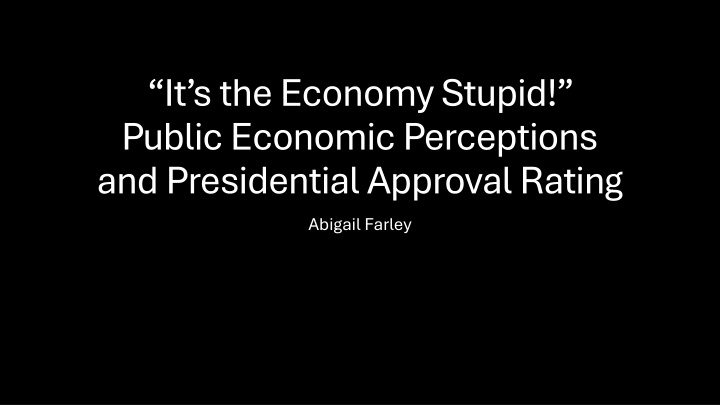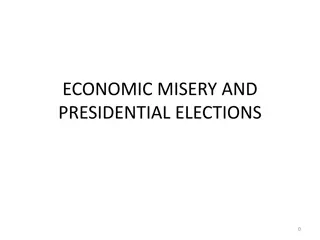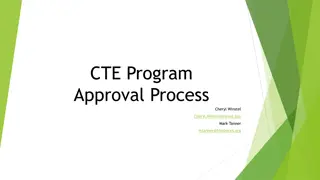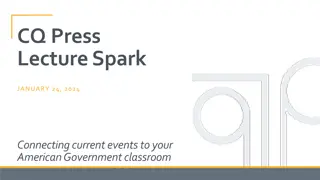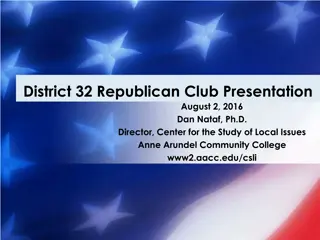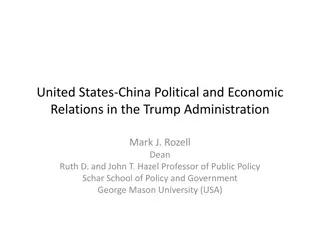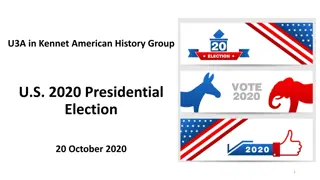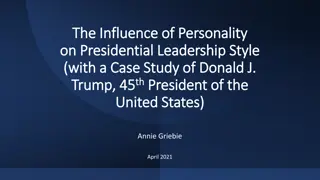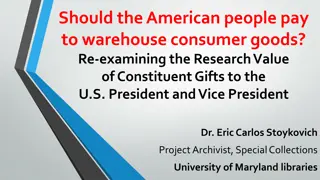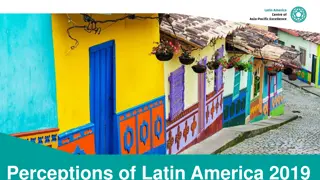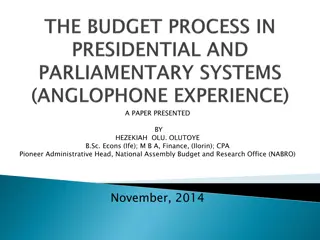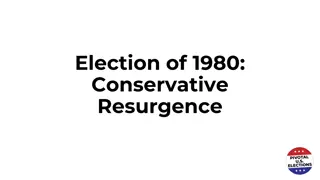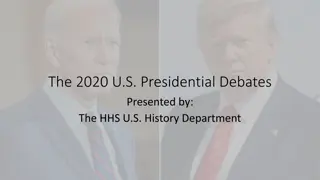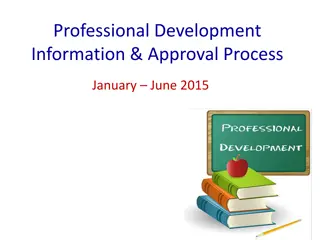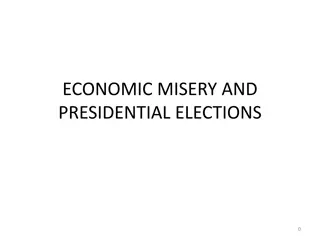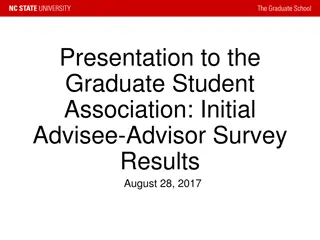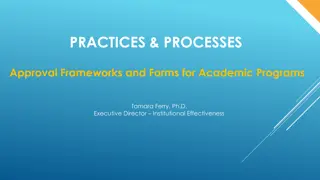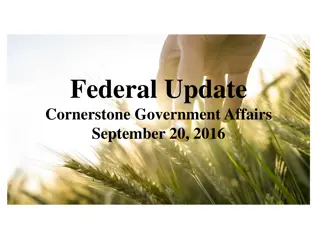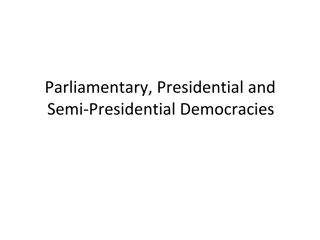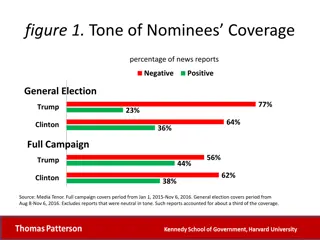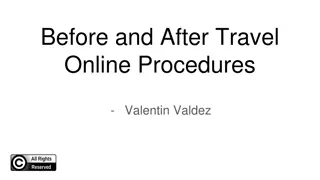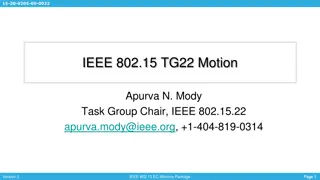Economic Perceptions and Presidential Approval: Insights and Analysis
Delve into the intricate relationship between public economic perceptions and presidential approval ratings, exploring key factors such as partisanship and historical data. Understand the nuances of how the economy influences public sentiment towards leaders.
Download Presentation

Please find below an Image/Link to download the presentation.
The content on the website is provided AS IS for your information and personal use only. It may not be sold, licensed, or shared on other websites without obtaining consent from the author.If you encounter any issues during the download, it is possible that the publisher has removed the file from their server.
You are allowed to download the files provided on this website for personal or commercial use, subject to the condition that they are used lawfully. All files are the property of their respective owners.
The content on the website is provided AS IS for your information and personal use only. It may not be sold, licensed, or shared on other websites without obtaining consent from the author.
E N D
Presentation Transcript
Its the Economy Stupid! Public Economic Perceptions and Presidential Approval Rating Abigail Farley
Hypothesis and reason for study Hypothesis: How does public economic perception effect presidential approval? Why focus on presidential approval instead of Congress? Why public economic perception? Why this question?
What this is and isnt What this is: Inquiry into a possible connection. What this isn t: Not trying to predict an election. Economic reality doesn t matter. Not a judge of a president.
Literature Literature on a similar topic discussed: Presidential approval Public perception of the economy How people gain information Partisanship
Presidential approval Presidential approval from Truman to Biden Gallup. (n.d.). Presidential Job Approval Center. Retrieved March 6, 2024, from Gallup: https://news.gallup.com/interactives/507569/presidential-job-approval-center.aspx
Economic perception Gallup Consumer price index from 1996 to 2024 Gallup. (n.d.). Economy. Retrieved April 1, 2024, from Gallup: https://news.gallup.com/poll/1609/consumer-views-economy.aspx
Importance of the economy The economy as a top issue from 2001-2024 Gallup. (n.d.). Most Important Problem. Retrieved April 3, 2024, from Gallup: https://news.gallup.com/poll/1675/most-important-problem.aspx
Government trust by party Trust in government by party from Eisenhower to Biden Center, P. R. (2023, September 19). Public Trust in Government: 1958-2023. Retrieved from Pew Research Center: https://www.pewresearch.org/politics/2023/09/19/public-trust-in-government-1958-2023/
Findings and Limitations Findings Little connection Partisanship matters more Limitations Limits of data Inseparable issues
Bibliography Berlemann, M., & Enkelmann , S. (2013). THE ECONOMIC DETERMINANTS OF U.S. PRESIDENTIAL APPROVAL. University of L neburg Working Paper Series in Economics , 1-47. Retrieved from Econstor. Blinder, A. S., & Krueger, A. B. (2004). What Does the Public Know about Economic Policy, and How Does It Know It? National Bureau of Economic Research, 1-61. Retrieved from https://www.nber.org/system/files/working_papers/w10787/w10787.pdf CAMPBELL, J. E. (2005). The Fundamentals in US Presidential Elections: Public Opinion, the Economy and Incumbency in the 2004 Presidential Election. Journal of Elections, Public Opinion and Parties, 73 83. Center, P. R. (2023, September 19). Public Trust in Government: 1958-2023. Retrieved from Pew Research Center: https://www.pewresearch.org/politics/2023/09/19/public-trust-in- government-1958-2023/ Center, P. R. (n.d.). U.S. Survey Methodology. Retrieved April 2, 2024, from Pew Research Center: https://www.pewresearch.org/our-methods/u-s-surveys/u-s-survey-methodology/ Dickerson, B. (2015). Economic Perceptions, Presidential Approval, and Causality: The Moderating Role of the Economic Context. American Politics Research, 1037 1065. ENNS, P. K., KELLSTEDT , P. M., & MCAVOY, G. E. (2012). THE CONSEQUENCES OF PARTISANSHIP IN ECONOMIC PERCEPTIONS . Oxford Journals, 287-310. Gallup. (n.d.). Economy. Retrieved April 1, 2024, from Gallup: https://news.gallup.com/poll/1609/consumer-views-economy.aspx Gallup. (n.d.). Most Important Problem. Retrieved April 3, 2024, from Gallup: https://news.gallup.com/poll/1675/most-important-problem.aspx Gallup. (n.d.). An Overview of Gallup's Presidential Approval Ratings. Retrieved March 30, 2024, from Gallup: https://news.gallup.com/poll/245606/update-gallup-presidential- approval-ratings.aspx Gallup. (n.d.). Presidential Job Approval Center. Retrieved March 6, 2024, from Gallup: https://news.gallup.com/interactives/507569/presidential-job-approval-center.aspx Monroe, K. R., & Laughlin , D. M. (1983). Economic Influences on Presidential Popularity among Key Political and Socioeconomic Groups: A Review of the Evidence and Some New Findings. Political Behavior, 309-345. Soroka, S. N., Stecula, D. A., & Wlezien, C. (2015). It's (Change in) the (Future) Economy, Stupid: Economic Indicators, the Media, and Public Opinion. American Journal of Political Science, 59(2), 457-474. Retrieved from https://www.jstor.org/stable/24363577?searchText=Public+Opinion+economy+United+States&searchUri=%2Faction%2FdoBasicSearch%3FQuery%3DPublic%2BOpinion%2Becono my%2BUnited%2BStates%26efqs%3DeyJjdHkiOlsiYW05MWNtNWhiQT09IiwiWTJoaGNIUmxjZz09Il0sImRpc2MiOlsiY0c5c Walstad, W. B. (1997). The Effect of Economic Knowledge on Public Opinion of Economic Issues. The Journal of Economic Education, 28(3), 195-205. Retrieved from https://www.jstor.org/stable/pdf/1183198.pdf Wu, D. H., Stevenson, R. L., Chen, C. H., & Guner, N. Z. (2002). The conditioned impact of recession news: A time series analysis of economic communication in the United States. International Journal of Public Opinion, 14(1), 19-36. Retrieved from file:///C:/Users/andre/Downloads/index%20(1).pdf
